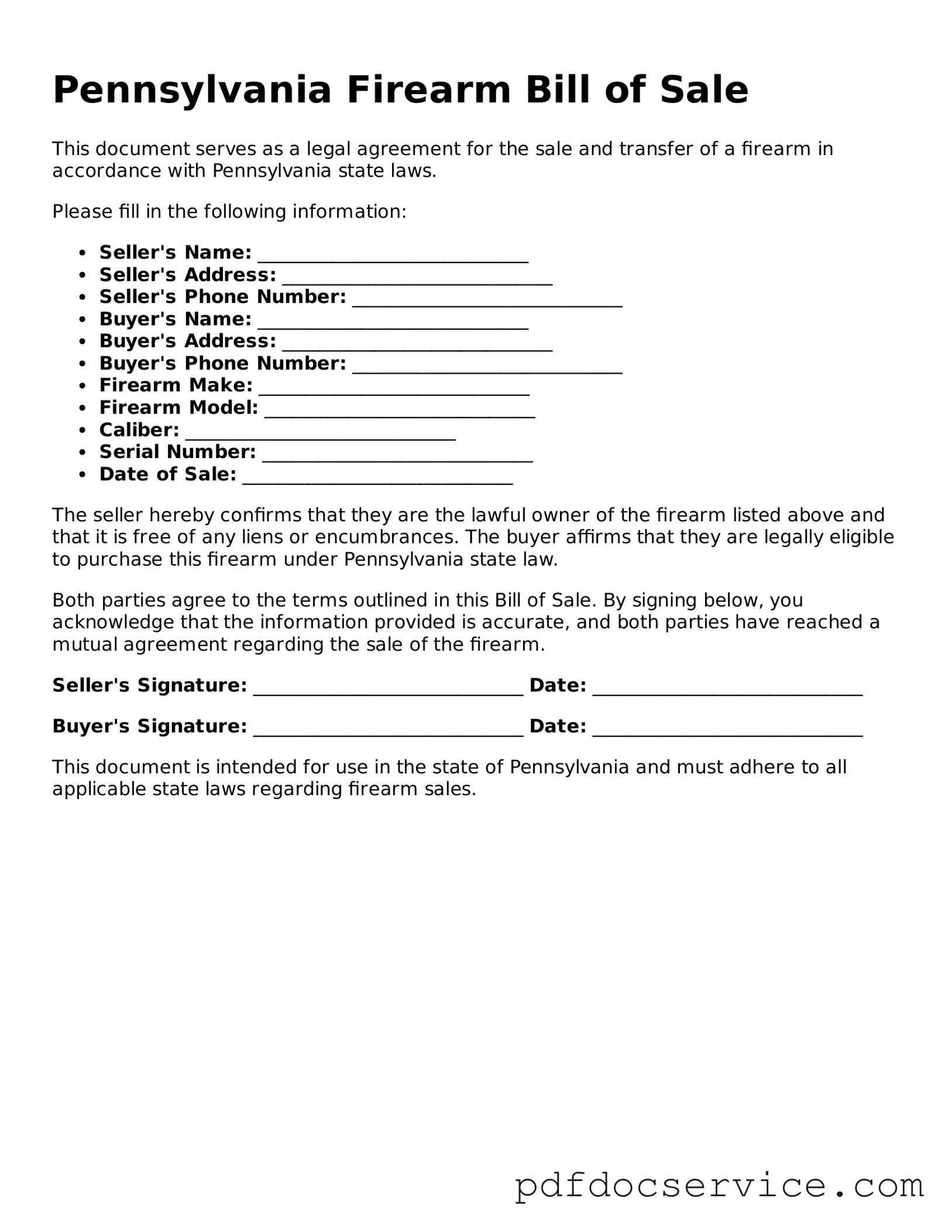Printable Firearm Bill of Sale Template for Pennsylvania
A Pennsylvania Firearm Bill of Sale form is a legal document used to record the sale or transfer of a firearm between two parties. This form serves as proof of the transaction and outlines important details such as the buyer, seller, and firearm description. Understanding this form is essential for both buyers and sellers to ensure compliance with state laws.
Open Firearm Bill of Sale Editor

Printable Firearm Bill of Sale Template for Pennsylvania
Open Firearm Bill of Sale Editor

Open Firearm Bill of Sale Editor
or
Get Firearm Bill of Sale PDF
Finish the form now and be done
Finish Firearm Bill of Sale online using simple edit, save, and download steps.